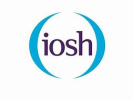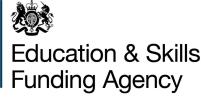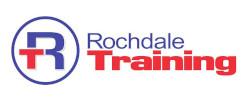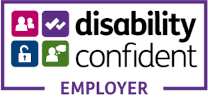Early years Practitioner Apprenticeship - BEES KNEES NURSERY & PRE-SCHOOL LTD ECCLES
Summary
We are looking for a candidate to join our new nursery in Eccles. We are looking for an enthusiastic and eager individual to join our new setting as a nursery practitioner. We are looking to build a family of staff, who all work together as a team and will grow with the Nursery.
- Annual wage
- £15,704 a year
Minimum wage rates (opens in new tab)
£7.55 Per Hour
- Training course
- Early years practitioner
- Hours
- Monday - Friday The Nursery will be open from 7.30 am - 6pm. Staff will be required to work maximum of 40 hours per week which will be provided in a shift pattern. Lunch break will be 45 mins which will be unpaid.
40 hours a week
- Start date
-
Sunday 16 November 2025
- Duration
-
18 Months
- Positions available
-
1
Work
As an apprentice, you’ll work at a company and get hands-on experience. You’ll gain new skills and work alongside experienced staff.
What you’ll do at work
- Creating fun and educational activities for the children under their care
- Keeping a record of the children’s progress to share with parents and other carers
- Building and maintaining relationships with parents and other carers to facilitate the daily learning and care of the children
- Working in a team with other staff members
- Creating an environment that meets the needs of the children by considering their cultural and medical needs
- Advising the Nursery Manager about concerns relating to a child or parent while respecting confidentiality requirements
- Adhering to the nursery’s policies and procedures, as well as legislative requirements relating to child care
- Maintaining high standards for safety, cleanliness and hygine
Where you’ll work
102 Worsley Road, Eccles, Manchester, M30 8LS
Check your travel to work
Directions map will appear here
Training
An apprenticeship includes regular training with a college or other training organisation. At least 20% of your working hours will be spent training or studying.
College or training organisation
ROCHDALE TRAINING ASSOCIATION LIMITED
Your training course
Early years practitioner
Equal to Level 2 (GCSE)
Course contents
- Support babies and young children through a range of transitions and significant events. e.g moving onto school, moving house or the birth of a sibling.
- Recognise when a child is in danger, at risk of serious harm or abuse and explain the procedures to be followed to protect them. Types of abuse including: domestic, neglect , physical, emotional, and sexual abuse.
- Identify risks and hazards in the provision and during off site visits relating to both children and staff and visitors and follow reporting procedures.
- Use prevention and control of infection techniques for hand washing and food preparation and hygiene, deal with spillages safely, safe disposal of waste, using correct personal protective equipment.
- Use equipment, furniture and materials safely and securely, following the manufacturers’ instructions and provision’s requirements.
- Encourage children to be aware of personal safety and the safety of others and develop personal hygiene practices (including oral hygiene).
- Promote health and wellbeing in the provision by encouraging babies and young children to consume healthy, balanced and nutritious meals, snacks and drinks appropriate for their age and be physically active through planned and spontaneous activity throughout the day, both indoors and outdoors.
- Carry out respectful care routines appropriate to the development, stage, dignity and needs of the child, including eating (feeding and weaning or complementary feeding), nappy changing procedures, potty or toilet training, care of skin, teeth and hair and rest and sleep provision.
- Communicate with all children, including those for whom English is an additional language and those with additional needs, in ways that will be understood. This includes verbal and non-verbal communication.
- Extend children’s development and learning through verbal and non-verbal communication.
- Encourage babies and young children to use a range of communication methods.
- Use a range of appropriate communication methods to share information with children, parents or carers and other professionals.
- Work with colleagues to identify and plan educational programmes to support children’s holistic development through a range of play, creativity, social development and learning.
- Implement and review activities to support children’s play, creativity, social development and learning and clear up after activities.
- Observe children, assess, plan and record the outcomes, share results accurately and confidentially in line with expected statutory and the provision’s requirements.
- Use learning activities to support early language development.
- Support children’s early interest and development in mark making, writing, reading and being read to.
- Support children’s interest and development in mathematical learning including numbers, number patterns, counting, sorting and matching.
- Support the graduated approach for the assessment, planning, implementation and reviewing of each baby’s and young child's individual plan for their care and participation.
- Work in ways that value and respect the developmental needs and stages of babies and children.
- Use feedback and mentoring or supervision to identify and support areas for development, goals and career opportunities.
- Work co-operatively with colleagues, other professionals and agencies to meet the needs of babies and young children and enable them to progress.
- Work alongside parents or carers and recognise their role in the baby or child’s health, well-being, learning and development.
- Encourage parents or carers to take an active role in the baby's or child’s care, play, learning and development.
- Demonstrate how to share information with parents or carers about the importance of healthy, balanced and nutritious diets for their child, looking after teeth and being physically active.
- Support babies and young children through a range of transitions and significant events. e.g moving onto school, moving house or the birth of a sibling.
- Recognise when a child is in danger, at risk of serious harm or abuse and explain the procedures to be followed to protect them. Types of abuse including: domestic, neglect , physical, emotional, and sexual abuse.
- Identify risks and hazards in the provision and during off site visits relating to both children and staff and visitors and follow reporting procedures.
- Use prevention and control of infection techniques for hand washing and food preparation and hygiene, deal with spillages safely, safe disposal of waste, using correct personal protective equipment.
- Use equipment, furniture and materials safely and securely, following the manufacturers’ instructions and provision’s requirements.
- Encourage children to be aware of personal safety and the safety of others and develop personal hygiene practices (including oral hygiene).
- Promote health and wellbeing in the provision by encouraging babies and young children to consume healthy, balanced and nutritious meals, snacks and drinks appropriate for their age and be physically active through planned and spontaneous activity throughout the day, both indoors and outdoors.
- Carry out respectful care routines appropriate to the development, stage, dignity and needs of the child, including eating (feeding and weaning or complementary feeding), nappy changing procedures, potty or toilet training, care of skin, teeth and hair and rest and sleep provision.
- Communicate with all children, including those for whom English is an additional language and those with additional needs, in ways that will be understood. This includes verbal and non-verbal communication.
- Extend children’s development and learning through verbal and non-verbal communication.
- Encourage babies and young children to use a range of communication methods.
- Use a range of appropriate communication methods to share information with children, parents or carers and other professionals.
- Work with colleagues to identify and plan educational programmes to support children’s holistic development through a range of play, creativity, social development and learning.
- Implement and review activities to support children’s play, creativity, social development and learning and clear up after activities.
- Observe children, assess, plan and record the outcomes, share results accurately and confidentially in line with expected statutory and the provision’s requirements.
- Use learning activities to support early language development.
- Support children’s early interest and development in mark making, writing, reading and being read to.
- Support children’s interest and development in mathematical learning including numbers, number patterns, counting, sorting and matching.
- Support the graduated approach for the assessment, planning, implementation and reviewing of each baby’s and young child's individual plan for their care and participation.
- Work in ways that value and respect the developmental needs and stages of babies and children.
- Use feedback and mentoring or supervision to identify and support areas for development, goals and career opportunities.
- Work co-operatively with colleagues, other professionals and agencies to meet the needs of babies and young children and enable them to progress.
- Work alongside parents or carers and recognise their role in the baby or child’s health, well-being, learning and development.
- Encourage parents or carers to take an active role in the baby's or child’s care, play, learning and development.
- Demonstrate how to share information with parents or carers about the importance of healthy, balanced and nutritious diets for their child, looking after teeth and being physically active.
Your training plan
All candidates will partake in training as other staff members do. This will be through Noodle Now, DFE and Dingleys. Apprenticeships will work towards their appropriate level. College days will be dictated by Rochdale Training College.
Requirements
Essential qualifications
- GCSE Maths & English (Grade Level 4/C and Above) essential
Let the company know about other relevant qualifications and industry experience you have. They can adjust the apprenticeship to reflect what you already know.
Skills
- Communication skills
- Punctuality
- Experienced with Children
- Kindness and Compassion
- Creativity
About this company
We offer childcare from newborns to children of 5 years. We are ran by two primary school trained teachers so it is our mission to get children school ready, whilst offering the best opportunity for play, creativity and exploration. We will be teaching basic German to the children, during circle time and other learning opportunities - more information about this on our website. Our director has created a topic lead curriculum, which follows Development Matters.
https://www.beeskneesnursery.co.uk/ (opens in new tab)
After this apprenticeship
Full time employment if apprentice has fulfilled their role and shown high standard of working. Progression opportunities providing they are available
Ask a question
The contact for this apprenticeship is:
BEES KNEES NURSERY & PRE-SCHOOL LTD ECCLES
Jacob Evans
jevans@rochdaletraining.co.uk
01706631417



















